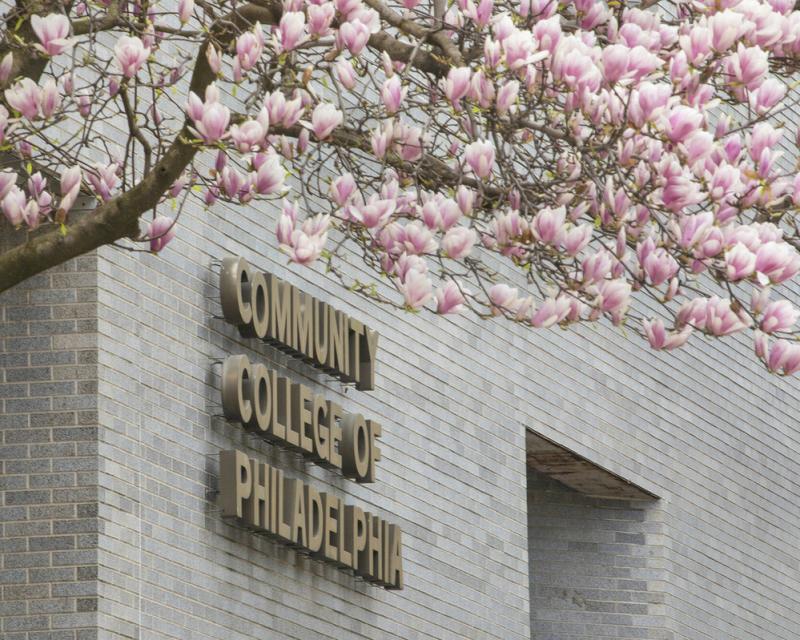Key Facts

Key Facts and Statistics about the College
College Environment
- Small class sizes and dedicated faculty create a personalized, supportive atmosphere.
- Our students and faculty bring a diverse mix of cultural backgrounds, ages and life experiences to the College. International students especially enrich our learning environment by offering a current global perspective.
The College enables all its students to interact with individuals from different parts of Philadelphia and the world, facilitating conversation, connection and self-discovery.
Student Body
Enrollment (for 2024-2025 academic year):
- Approximately 10,690 full-time equivalent students.
- Approximately 18,710 students enrolled in credit classes.
- Approximately 4,013 students enrolled in noncredit, continuing education coursework
Student Characteristics
- Approximately 67% are minority students
- More than half (58%) are 24 or younger, and the median age is 23
- There are more women (66%) than men
- There are diverse groups of students:
- Asian/Pacific Islander 8.82%
- Black Non-Hispanic 36.5%
- Hispanic 18.23%
- White 23%
- Multi-racial 3.69%
- Other/Unknown 17.78%
- White Non-Hispanic 14.98%
- Approximately 67% are minority students
- 63% are pursuing transfer/liberal arts programs
- 25% are pursuing career programs
- 14% are pursuing continuing education courses
Economic Impact for 2024-2025
Annual Payroll: $90 Million
Wage Tax: $3.4 Million
Expenditures for Goods and Services: $117M
Community College of Philadelphia generates $1 billion in annual economic activity while supporting more than 4,370 jobs and adding $30 million to local and state tax revenues. (Economic and Social Value for the Community College of Philadelphia: Comprehensive Impact Report, November 2025, Econsult Solutions, Inc.)
Faculty and Staff
328 Full-time Faculty
402 Part-time Faculty
521 Administrative and Support Staff
2025-2026 Budget
$185 Million
Operating $164.4 Million
Capital $8.8 Million
Catto Scholarship $11.7 Million
Academic Offerings
- More than 100 degree and certificate programs in Business, Entrepreneurship and Law; Creative Arts; Design, Construction and Transportation; Education and Human Services; Health Care; Liberal Arts and Communications; and Science and Technology.
- Day, evening and weekend classes for full-time and part-time students. Credit and noncredit courses at the Main Campus, three regional Centers and neighborhood locations.
- Online and hybrid courses.
- Customized courses for business and industry.
- Comprehensive academic support services and programs, services for students with disabilities and other support services available.
Degrees Granted
Associate in Arts (A.A.)
Associate in Science (A.S.)
Associate in Applied Science (A.A.S.)
Accreditation
Middle States Commission on Higher Education
Specific program accreditation information is available
Financial Aid
Approximately 78% of full-time students and 69% of all students receive some type of financial aid.
Funding
Operating Costs are shared among the students, city and the Commonwealth. Capital costs are funded by the city and the Commonwealth.
Educational Impact
- We are the largest public institution of higher education in Philadelphia and the sixth largest in Pennsylvania. The College has served more than 685,000 individuals since it began operation.
- More than three-quarters of graduates in transfer programs continue on to four-year institutions
- 69% of 2024 graduates are employed in Philadelphia County and 24% are employed in the Philadelphia metro area
Locations
Interim President
Dr. Alycia Marshall
Governance
The College's 15-member Board of Trustees is appointed by the mayor.
Historical Highlights
Founded in 1964, the College opened for classes in 1965 in a former department store at 34 S. 11th Street while a permanent campus was being sought. In 1971 the College acquired the third Philadelphia Mint building at 1700 Spring Garden Street from the federal government, and the College began holding classes there in 1973.
The College maintained both the 11th Street and 17th Street campuses until the spring of 1983 when all of our Main Campus facilities, including the West and Bonnell buildings, were built and consolidated into the permanent campus at 17th Street.
The Winnet Student Life Building and Gymnasium were completed in September 1991.
The West Regional Center opened in 1992, the Northeast Regional Center in 1994 and the Northwest Regional Center in 1999.
Groundbreaking for the Center for Business and Industry took place in November 2001, and the building was completed in January 2003.
Groundbreaking for a new building at the Northeast Regional Center took place in April 2009, and the new building was completed in summer 2010.
A major renovation and expansion of the College’s Main Campus began in summer 2009. A new Pavilion Building housing the Culinary Arts and Hospitality Management programs, new student and staff dining services, the Welcome Center and portions of the new College Bookstore opened in fall 2011. Renovations to portions of the Bonnell, Mint and West buildings were completed in fall 2014.
The College's most recent addition, the Career and Advanced Technology Center, officially opened in August 2022. The CATC doubles the capacity of the College's Transportation Technology programs, and serves as a hub for career and technical training.
Renovations at all locations to libraries will establish state-of-the-art learning commons equipped with technological advancements to meet individual and group study needs.
National Recognition
The Nursing program, designated a Center of Excellence by the National League for Nursing since 2004, was one of the first programs to receive this recognition and remains one of only a few community college Nursing programs in the country to obtain this honor
The Early Childhood Education Apprenticeship program was listed in a Washington Monthly magazine article, "The Twelve Most Innovative Colleges for Adult Learners," and recognized as a potential "national model."
The Biomedical Research Technician (BRT) Apprenticeship program, started in 2017, is the first-ever registered, nontraditional apprenticeship program in biomedical research in Pennsylvania.
